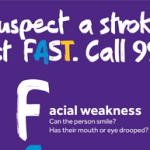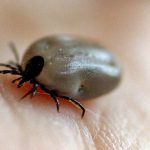Blocked, itchy nose? Watery, itchy eyes?
These are just a few of the symptoms of Hay Fever that affects 1 in 5 people in the UK.
It is early in the year, but many of us have been experiencing hay fever symptoms for the last month or more. The unusually warm weather has encouraged the early flowering trees to produce plenty of pollen, and the weather conditions themselves have led to perfect conditions for the pollen to fly.
So, even though it is only just April, here is some advice for helping to battle the pollen and stay healthy.
To answer your pending question, no, there are no miracle cures for hay fever, but by being wise to the symptoms, you can help to relieve them, allowing youself to enjoy your breaks and the big outdoors once more.
The first step is to try to figure out when your symptoms occur most, as this could be a big indication as to what pollen is affecting you and how you can help to reduce these affects.

Here at DocHQ we believe that in order to help you beat your illness you need to be knowledgeable. There are many different types of pollen that could be causing you to have the cold-like symptoms, it will help if you have an idea of what affects you most.
Tree Pollen
We tend to hear hay fever, and think of grasses and flowers, but one of the most common causes of hay fever is tree pollen. It is estimated that there are about 100 different types of trees that can trigger allergic reactions. If you’re a sufferer, you’ll be showing symptoms of this from March – May.
Grass Pollen
Grass pollen is another type of pollen which you’ll find often triggers hay fever symptoms in the middle of May and lasts until the end of July.
Weed Pollen
Between late June and September and is usually worse on warmer dry days – weed pollen. Luckily, when it’s raining it tends to remove the pollen from the air.
Did you know that some foods can make the reaction worse too due to similarities in the proteins in the foods and the weed pollen?
The most common foods to avoid are:
- Melons
- Green Peppers
- Carrots
- Celery
- Parsnip
- Sunflower seeds.
Alcohol
It may feel like a nice cold beer is a great way to enjoy the day, even if you’re feeling rubbish with hay fever. But because alcohol contains histamine, which is responsible for allergy symptoms – your nice cold beer or glass of wine can actually make your hay fever worse.
Top 3 tips to help to combat that pesky pollen:

Keep your windows closed
Not always an option, granted, but on days where you can (especially when the pollen count is particularly high), this will stop it from getting into your home. Pollen peaks particularly between 6pm and 9pm due to it rising during the day, and then descending with the cooler evenings.
Change your clothes
By showering, washing your hair and changing your clothes, you’ll remove the pollen from you. If you can, try drying your clothes inside too as this will stop the pollen from contaminating them whilst outside.
Antihistamines
These will be your best friend, especially, whilst the pollen count is high. Doctors advise to continue taking these throughout the year though so you can help to build up some resilience to the allergies. Don’t forget, these come in all forms – Sprays, drops and tablets.
If you have tried everything you can and your sickness symptoms still persist, we suggest you speak to a medical professional to allow you to get out and enjoy the sun.
Other blogs that may interest you: How to protect yourself against lyme disease, Is social media affecting your mental health? Flu season, Benifits of continuous learning.
DocHQ Ltd is a Health Tech company improving choices. We help you connect efficiently to health support and advice whether you are at home, work or travelling. See our website for our services or call us on 0330 088 0645.



